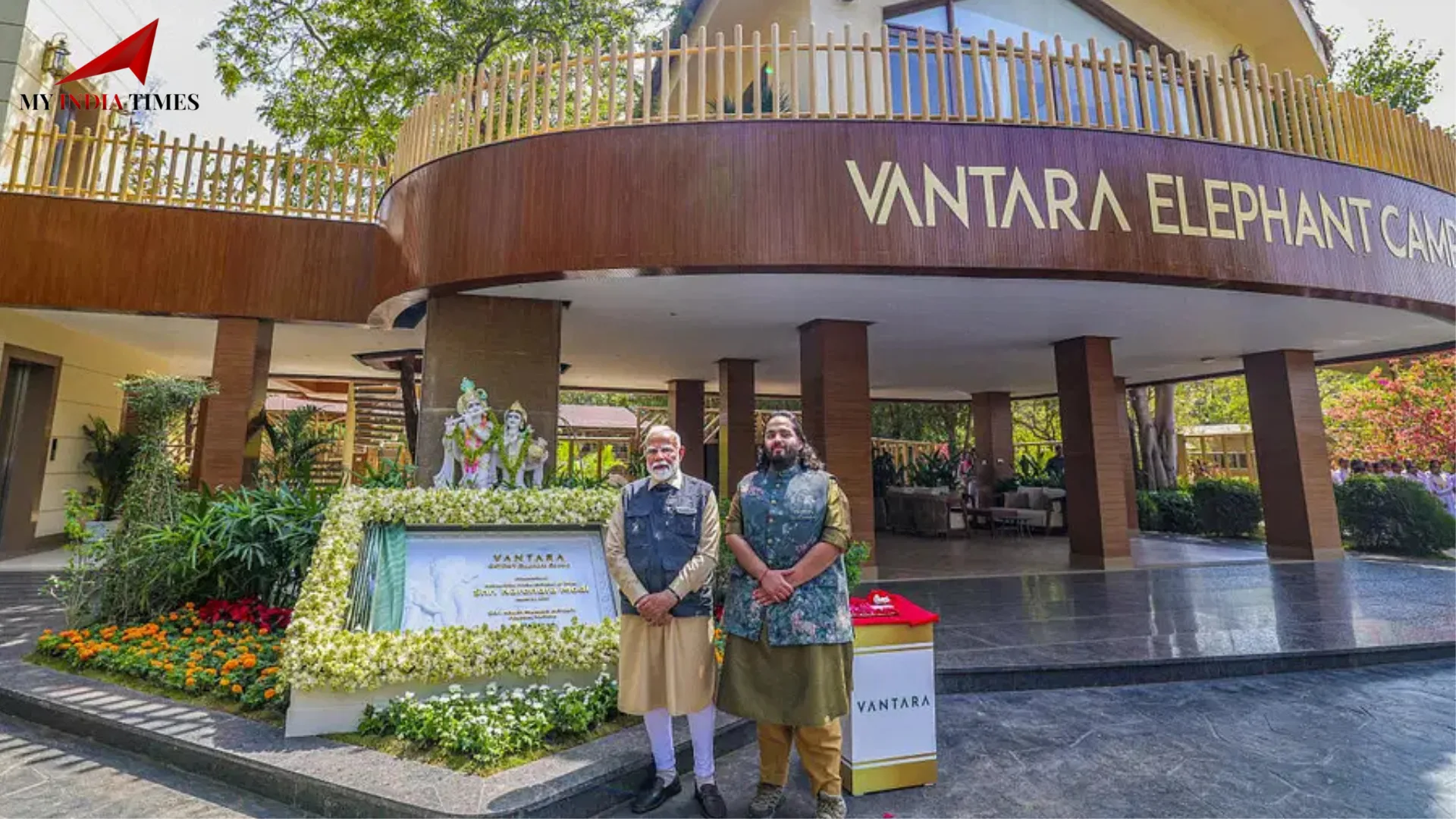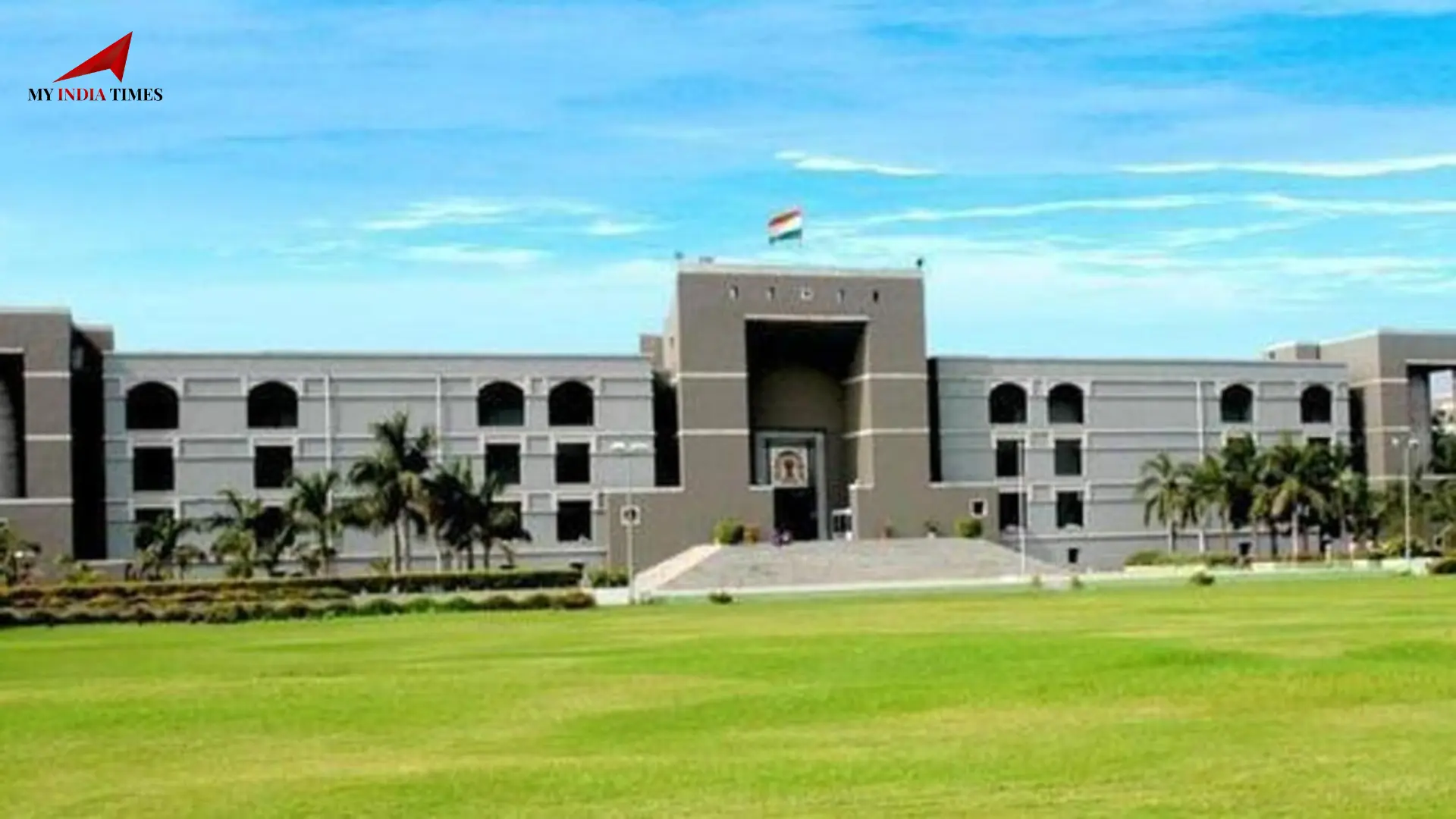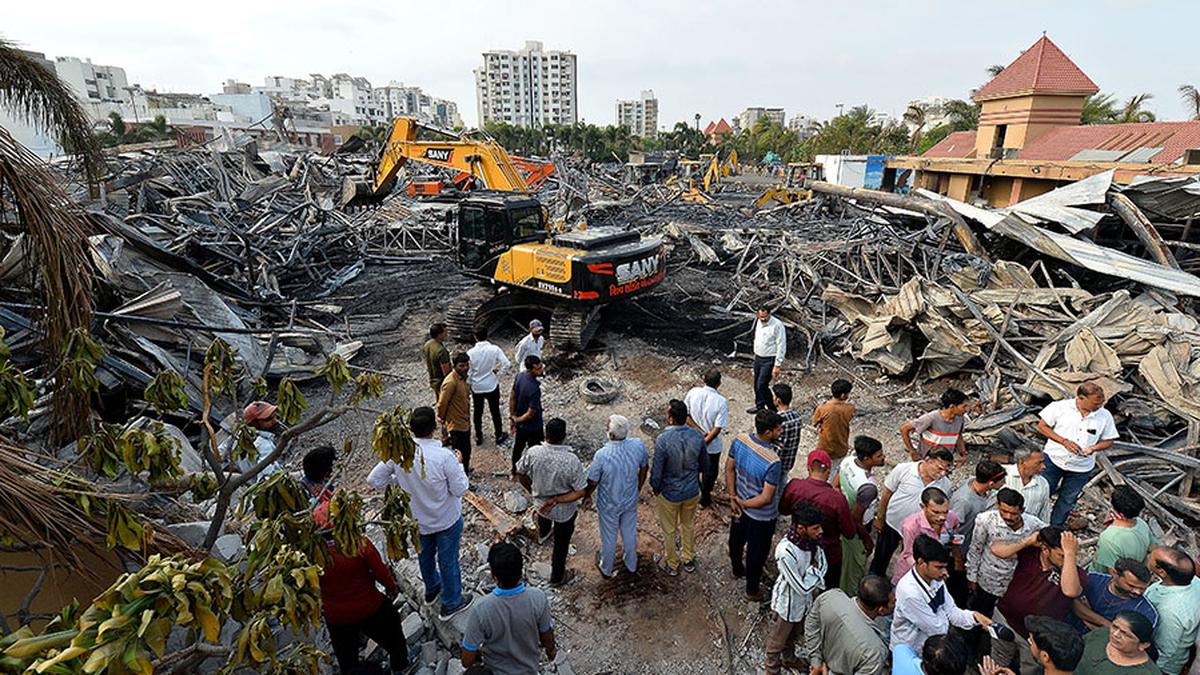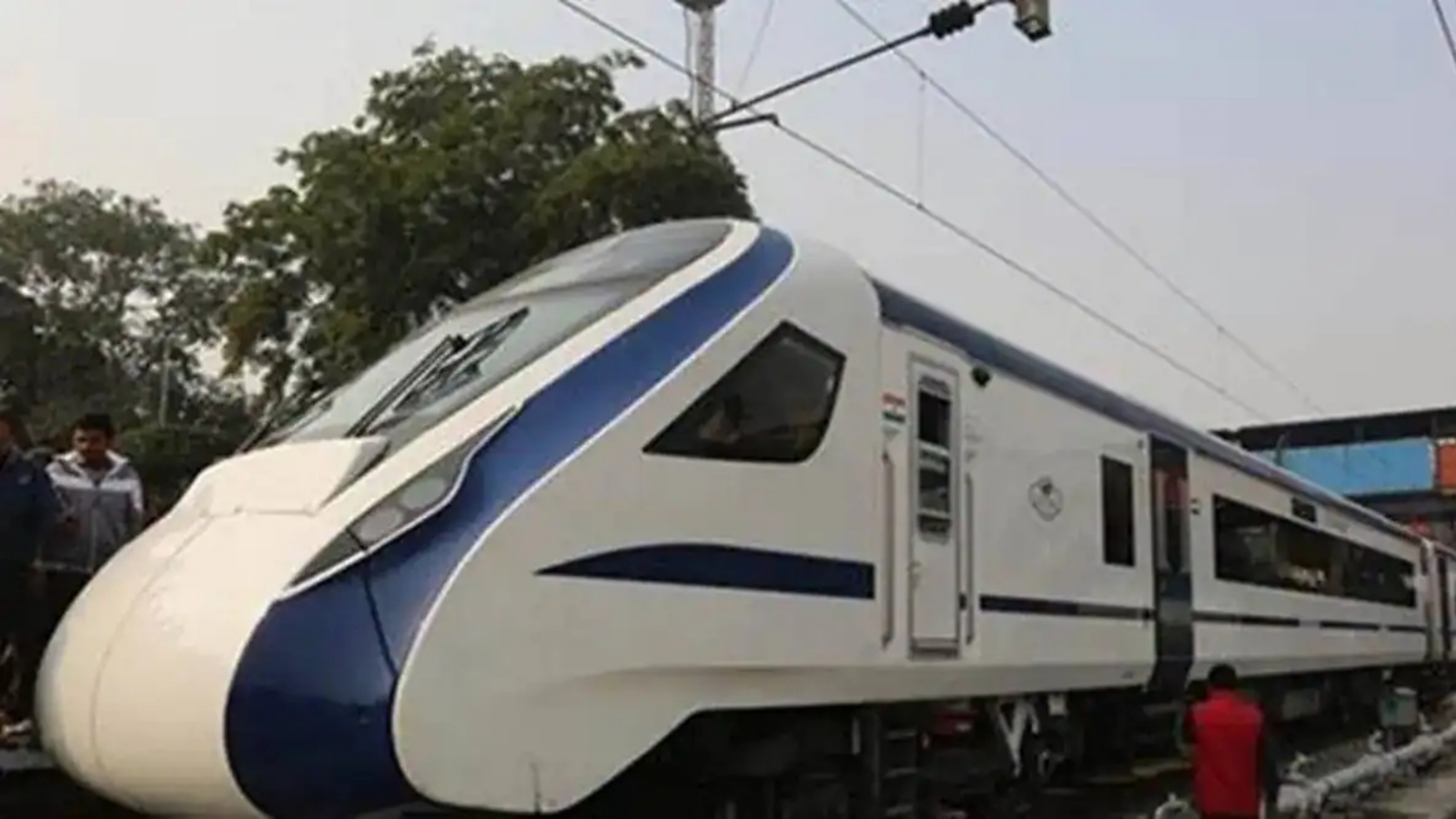Home / gujarat / Gujarat Local Body Poll Results: BJP Wins Junagarh Municipal Corporation and Leaves Congress Behind
Gujarat Local Body Poll Results: BJP Wins Junagarh Municipal Corporation and Leaves Congress Behind
By: My India Times
5 minutes read 46Updated At: 2025-02-18

The counting of votes for Gujarat’s local body elections is currently in progress, and the Bharatiya Janata Party (BJP) is already heading towards a decisive victory across multiple municipalities and panchayats. The party has successfully secured a substantial lead in various regions, particularly within the Junagarh Municipal Corporation, where it has outperformed Congress and established its leadership. Let us examine the current results and key insights from this electoral process.
BJP’s Unstoppable Momentum in Gujarat’s Local Polls
The BJP is making significant progress in the local body elections in Gujarat, demonstrating its influence not only in urban municipalities but also in rural taluka panchayats. The latest count reveals that the party is poised for a substantial victory, securing an impressive 215 seats uncontested due to withdrawals from opposing candidates.
This unchallenged achievement underscores the BJP's dominant position in Gujarat and signifies its sustained appeal at the grassroots level. The party’s ability to attain such a significant number of seats without opposition indicates a notable degree of political stability and confidence among voters.
Junagarh Municipal Corporation: BJP’s Major Win
One of the most talked-about outcomes of this election cycle has been BJP’s significant win in the Junagarh Municipal Corporation, a key urban area in the state. The BJP’s triumph here is a major blow to Congress, which has historically had a stronghold in this region.
For BJP, securing Junagarh Municipal Corporation marks another key victory in its ongoing expansion in Gujarat. This victory not only reinforces the party's dominance over the municipality but also indicates that its popularity is extending across various regions of the state, including both rural and urban areas. Conversely, Congress must reassess its strategy to regain its position in this vital region.
High Voter Turnout Reflects Public Engagement
This year’s local body elections also saw a healthy voter turnout, which demonstrates an engaged electorate ready to make its voice heard. The voter turnout in municipal elections stood at 61.65%, while the turnout for taluka panchayats was even higher at 65.07%.
These numbers suggest that despite the challenges of the ongoing pandemic and other socio-political factors, citizens are increasingly recognizing the importance of local governance. When the public actively participates in local elections, it strengthens the democratic process and enhances the accountability of elected representatives.
Reservation for OBCs and Women
Another noteworthy development in the Gujarat local body polls is the implementation of reservation policies aimed at improving inclusivity. In these elections, 27% of seats were reserved for Other Backward Classes (OBCs), while 50% of the seats were earmarked for women.
These provisions ensure that marginalized communities and women are given a voice in local governance. This move towards reservation is a significant step in creating a more equitable society and ensuring that local bodies reflect the diversity of the population they serve. Such measures help foster social justice and inclusivity, allowing for more balanced and representative decision-making processes.
Unopposed Seats and Strong Hold
One of the most interesting aspects of these elections is the number of seats that BJP has secured without opposition. A total of 215 seats were won unopposed due to the withdrawal of candidates from rival parties. In many cases, opponents, including Congress, opted out of the race, recognizing the overwhelming strength of the BJP's candidates in their regions.
This trend of unopposed victories is a clear reflection of the BJP's solid grip on local politics and its ability to unite party members and garner widespread support. The party’s consistent performance in recent elections further cements its reputation as a political powerhouse in Gujarat.
While this success is undeniably a major achievement for the BJP, it also raises questions about the opposition's readiness to challenge the ruling party in local elections. As BJP strengthens its position, it will be crucial for opposition parties to rethink their strategies in order to remain competitive.
Struggling to Match BJP’s Strength
For Congress, the latest results mark another defeat in Gujarat’s local body elections, particularly with the loss of Junagarh Municipal Corporation. The party’s failure to offer a substantial challenge to BJP’s dominance in this region and beyond points to a deeper issue within Congress.
The party has struggled to make inroads into the BJP’s stronghold, despite having a historical presence in the state. As a result, the defeat in Junagarh and other areas is a wake-up call for Congress, which needs to re-evaluate its approach to politics in Gujarat. Strengthening grassroots connections, re-engaging with voters, and offering alternatives to BJP’s policies could be key strategies for Congress to consider moving forward.
What Does This Election Mean for Gujarat’s Future?
As Gujarat's local body poll results continue to unfold, the BJP is clearly setting the stage for continued political dominance. The party’s victory in Junagarh and other key areas underscores its popularity and organizational strength. The party is consolidating its hold not just in urban centers but also in rural regions, signaling a growing influence at all levels of government.
For Gujarat’s future, these election results suggest a continued focus on development and welfare programs, with the BJP likely to maintain its strong presence across various districts. The party's ability to secure victories without much opposition raises questions about the competitiveness of future elections, but it also indicates a desire for stability and continued growth.
The introduction of reservation policies for OBCs and women also signals a shift toward greater inclusivity, which could help shape more equitable local governance in the years to come. These changes could pave the way for more balanced representation and social justice in Gujarat’s political landscape.
....The counting of votes for Gujarat’s local body elections is currently in progress, and the Bharatiya Janata Party (BJP) is already heading towards a decisive victory across multiple municipalities and panchayats. The party has successfully secured a substantial lead in various regions, particularly within the Junagarh Municipal Corporation, where it has outperformed Congress and established its leadership. Let us examine the current results and key insights from this electoral process.
BJP’s Unstoppable Momentum in Gujarat’s Local Polls
The BJP is making significant progress in the local body elections in Gujarat, demonstrating its influence not only in urban municipalities but also in rural taluka panchayats. The latest count reveals that the party is poised for a substantial victory, securing an impressive 215 seats uncontested due to withdrawals from opposing candidates.
This unchallenged achievement underscores the BJP's dominant position in Gujarat and signifies its sustained appeal at the grassroots level. The party’s ability to attain such a significant number of seats without opposition indicates a notable degree of political stability and confidence among voters.
Junagarh Municipal Corporation: BJP’s Major Win
One of the most talked-about outcomes of this election cycle has been BJP’s significant win in the Junagarh Municipal Corporation, a key urban area in the state. The BJP’s triumph here is a major blow to Congress, which has historically had a stronghold in this region.
For BJP, securing Junagarh Municipal Corporation marks another key victory in its ongoing expansion in Gujarat. This victory not only reinforces the party's dominance over the municipality but also indicates that its popularity is extending across various regions of the state, including both rural and urban areas. Conversely, Congress must reassess its strategy to regain its position in this vital region.
High Voter Turnout Reflects Public Engagement
This year’s local body elections also saw a healthy voter turnout, which demonstrates an engaged electorate ready to make its voice heard. The voter turnout in municipal elections stood at 61.65%, while the turnout for taluka panchayats was even higher at 65.07%.
These numbers suggest that despite the challenges of the ongoing pandemic and other socio-political factors, citizens are increasingly recognizing the importance of local governance. When the public actively participates in local elections, it strengthens the democratic process and enhances the accountability of elected representatives.
Reservation for OBCs and Women
Another noteworthy development in the Gujarat local body polls is the implementation of reservation policies aimed at improving inclusivity. In these elections, 27% of seats were reserved for Other Backward Classes (OBCs), while 50% of the seats were earmarked for women.
These provisions ensure that marginalized communities and women are given a voice in local governance. This move towards reservation is a significant step in creating a more equitable society and ensuring that local bodies reflect the diversity of the population they serve. Such measures help foster social justice and inclusivity, allowing for more balanced and representative decision-making processes.
Unopposed Seats and Strong Hold
One of the most interesting aspects of these elections is the number of seats that BJP has secured without opposition. A total of 215 seats were won unopposed due to the withdrawal of candidates from rival parties. In many cases, opponents, including Congress, opted out of the race, recognizing the overwhelming strength of the BJP's candidates in their regions.
This trend of unopposed victories is a clear reflection of the BJP's solid grip on local politics and its ability to unite party members and garner widespread support. The party’s consistent performance in recent elections further cements its reputation as a political powerhouse in Gujarat.
While this success is undeniably a major achievement for the BJP, it also raises questions about the opposition's readiness to challenge the ruling party in local elections. As BJP strengthens its position, it will be crucial for opposition parties to rethink their strategies in order to remain competitive.
Struggling to Match BJP’s Strength
For Congress, the latest results mark another defeat in Gujarat’s local body elections, particularly with the loss of Junagarh Municipal Corporation. The party’s failure to offer a substantial challenge to BJP’s dominance in this region and beyond points to a deeper issue within Congress.
The party has struggled to make inroads into the BJP’s stronghold, despite having a historical presence in the state. As a result, the defeat in Junagarh and other areas is a wake-up call for Congress, which needs to re-evaluate its approach to politics in Gujarat. Strengthening grassroots connections, re-engaging with voters, and offering alternatives to BJP’s policies could be key strategies for Congress to consider moving forward.
What Does This Election Mean for Gujarat’s Future?
As Gujarat's local body poll results continue to unfold, the BJP is clearly setting the stage for continued political dominance. The party’s victory in Junagarh and other key areas underscores its popularity and organizational strength. The party is consolidating its hold not just in urban centers but also in rural regions, signaling a growing influence at all levels of government.
For Gujarat’s future, these election results suggest a continued focus on development and welfare programs, with the BJP likely to maintain its strong presence across various districts. The party's ability to secure victories without much opposition raises questions about the competitiveness of future elections, but it also indicates a desire for stability and continued growth.
The introduction of reservation policies for OBCs and women also signals a shift toward greater inclusivity, which could help shape more equitable local governance in the years to come. These changes could pave the way for more balanced representation and social justice in Gujarat’s political landscape.
By: My India Times
Updated At: 2025-02-18
Tags: gujarat News | My India Times News | Trending News | Travel News
Join our WhatsApp Channel











































































































.png)
 (1).png)






















